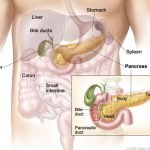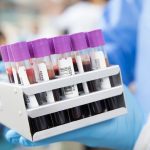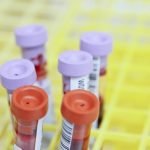CT and MRI scans may fail to detect pancreatic cancer tumors
Pancreatic cancer occurs when malignant cells develop in a part of the pancreas.
This may affect how the pancreas works, including the functioning of the...
Scientists find potential new way to treat pancreatic cancer
In a study from Mayo Clinic Comprehensive Cancer Center, scientists found a gene marker that may lead to a more effective, precision treatment for...
Scientists solve a big puzzle of pancreatic cancer
Pancreatic cancer is one of the most insidious forms of the disease, in which an average of only 9% of patients are alive five...
Research solves an 80-year-old mystery of pancreatic cancer
In a study from the University of Virginia, scientists have made a new discovery about how pancreatic cancer fuels its growth.
The finding may help...
Scientists discover critical cause of pancreatic cancer spread
Researchers found that a couple of molecules that nerve cells use to grow during development could help explain why the most common pancreatic cancers...
Vitamin A may improve therapy for pancreatic cancer
An early study from the Queen Mary University of London found that the addition of high doses of a form of vitamin A could...
A new blood test could detect pancreatic cancer very early
In a study from Lund University, scientists found a blood test can detect pancreatic cancer in the very earliest stages of the disease.
Pancreatic cancer...
Stanford research creates new vaccine to prevent pancreatic cancer
Scientists from Stanford University advanced an old concept to develop a new strategy to train the immune system of mice to recognize cancer cells.
This...
Harvard study shows new way to predict risk of pancreatic cancer
In a study from Harvard University, scientists found artificial intelligence (AI) model trained with electronic health records could identify people with a much higher...
This blood test could detect very early pancreatic cancer
Pancreatic cancer is currently very difficult to detect while it is still resectable.
Scientists from Lund University found a blood test can detect pancreatic cancer...










